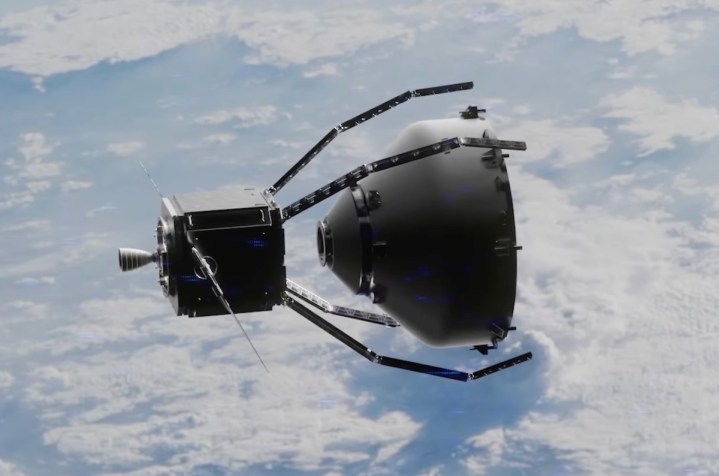
A startup geared toward clearing up space junk now has a chance to test its technology after securing a ride aboard to orbit aboard an Arianespace Vega-C rocket.
Switzerland-based ClearSpace hopes to launch its ClearSpace-1 mission in 2026 with the aim of capturing and removing a piece of orbital debris weighing 247 pounds (112 kilograms).
Space junk in low-Earth orbit is a pressing issue. Comprising parts of old rockets, decommissioned satellites, and fragments created by collisions between these parts, the debris can go on to cause further damage, potentially taking out functioning satellites or even causing damage to the International Space Station or the new orbital outpost operated by China.
ClearSpace’s mission will attempt to remove a payload adapter from a 2013 Vega rocket launch. The company’s spacecraft will use a claw with four arms to grab the part and transport it to a lower orbit where both the spacecraft and the debris will enter the atmosphere and burn up.
The aim is to demonstrate the effectiveness of ClearSpace’s technology, with success potentially paving the way for the commercialization of the technology.
Luc Piguet, CEO and co-founder of ClearSpace, described the upcoming mission as “a turning point in the space industry as we urgently need to bring solutions to a fundamental problem: we are putting objects into space quicker than they are being removed.”
Stéphane Israël, CEO of Arianespace, pointed out the extent of the junk problem, saying that there are currently more than 34,000 pieces of space debris larger than 10 centimeters and around 6,500 operational satellites in orbit, a number could increase to more than 27,000 by the end of the decade.”
“These figures demonstrate the need to find innovative solutions for preserving the benefits of space for humanity and life on Earth,” Israël said.
Various solutions for clearing space debris are under development, and in testing some have proved more successful than others. A fully tested, reliable commercial operation has yet to emerge, though ClearSpace clearly has its eye on the prize.

